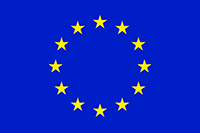

Econcult publication - October 2020
A research by the ECONCULT team of the University of Valencia, published in the academic journal Sustainability, provides evidence that the spending of city councils on culture is exploited in an opportunistic way by the governing parties in medium-sized cities (between 20,000 and 100,000 inhabitants), so that they increase spending in the pre-election year, with the intention of winning over voters.
Abstract: This article analyzes whether expenditure on the provision of merit goods, culture, health, education, and sports, by local governments, in medium-sized cities (between 20,000 and 100,000 inhabitants) is tied to the electoral cycle; that is, whether expenditure increases in the run up to an electoral process. Further, we analyze whether the increase in spending on Culture by local governments has any significant e ect on the probability of local governments being re-elected. To answer these questions, a database of 350 medium-sized municipalities is used comprising the period 2011 to 2019, when two municipal elections were held in Spain; in 2015 and in 2019. The results confirm that both total spending and spending on culture and sports, are tied to the electoral cycle, while expenditure on other merit goods is not. Moreover, using a logit model, it is confirmed that an increase in culture expenditure has a significant e ect on the probability of the government being re-elected. Specifically, a one-third increase in cultural expenditure, as a proportion of total expenditure (e.g., passing from 6% to 8%) at local government level, improves re-election chances by almost 10%.
Keywords: political business cycle; local government; cultural policies

